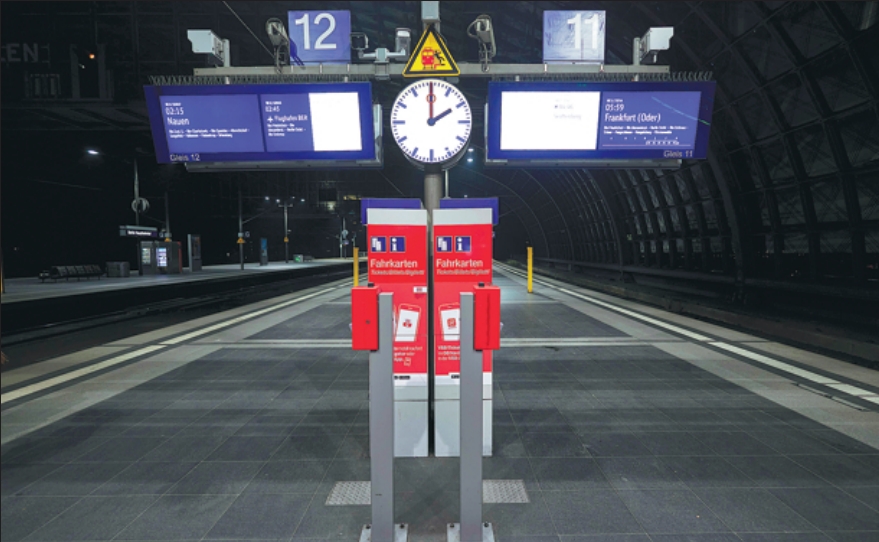Germany troubled by nationwide protests
Deeper reason for unrest lies in country's severe economic difficulties, experts say


As William Lau hurriedly departed from Berlin for a business trip on Tuesday, he saw that certain areas of the city were obstructed by farmers' protests.
He said he hoped the intensity of the protests would diminish by the time he returned to the city three days later. However, as he sat on the train and attempted to book a return ticket, he realized that he might not be able to return on time.
Starting from Wednesday, German commuters will encounter train cancellations throughout the country because of a three-day nationwide rail strike. The GDL train drivers' union began its main strike in the early hours of Wednesday, following a previous strike by cargo train drivers who had walked out on Tuesday evening.
GDL is demanding a reduction in working hours from 38 to 35 hours per week for shift workers, as well as a pay increase of 555 euros ($610) per month and a one-off inflation compensation bonus of 3,000 euros.
Since Monday, German farmers have initiated a weeklong series of nationwide protests against subsidy reductions, causing disruptions by blocking roads with tractors. They argue that the government's plans to eliminate two tax breaks, which currently provide them with about 900 million euros in annual savings, unfairly burden them and will force them out of business.
Joachim Rukwied, head of the German farmers' association DBV, vowed to ramp up protests on Wednesday and called for the government to take the subsidy cuts off the table completely.
The protests have piled further pressure on Chancellor Olaf Scholz, whose government is trying to get its 2024 budget over the finish line.
Meng Hong, a senior researcher in the School of Global and Area Studies at Renmin University of China, said the protests by farmers and strikes by rail drivers are driven by their specific demands, but the deeper reason lies in Germany's severe economic difficulties, accompanied by increasing criticism of the coalition government by the general public.
"Since 2008, the German economy has been struggling. It initially faced the impact of the European debt crisis, followed by the repercussions of the refugee crisis. The ongoing conflict between Russia and Ukraine for two years has had a significant impact on the German economy, affecting the lives of individuals across various sectors in Germany," she said.
Germany, considered the economic powerhouse of Europe, has even been criticized by observers for dragging down the development of the European economy.
Social instability
The protests and strikes would cause economic losses and even social instability in the country, Meng said. Although the German government is not considering further changes to its plans to phase out agricultural subsidies, prominent politicians have expressed concerns that the unrest could be exploited by extremist groups and are closely monitoring the situation's development.
Tian Dewen, a researcher on European issues at the Chinese Academy of Social Sciences, said the German economy has been continuously sluggish, and state finances are becoming increasingly tight. In this situation, various interest groups from different social classes may resort to forms of pressure on the government such as strikes and protests to protect their existing benefits.
In Germany, disputes involving businesses, employees and the government are generally resolved through negotiations, Tian said. However, the rising number of strikes and protests indicates that their conflicts have become sharper than before, and the degree of social division and fragmentation has also increased.
The current strikes and protests are likely to be ultimately resolved through negotiations in the end and should not lead to widespread chaos in society, he said. However, with the worsening economic difficulties in Germany, an increasing number of people may express their dissatisfaction with the current government through parliamentary elections at various levels this year.
Tian added that mainstream political parties in Germany are receiving less support from domestic voters, while support for the far-right Alternative for Germany party is growing rapidly. This situation would make it more difficult for the coalition government to govern.
Agencies contributed to this story.
chenyingqun@chinadaily.com.cn

































